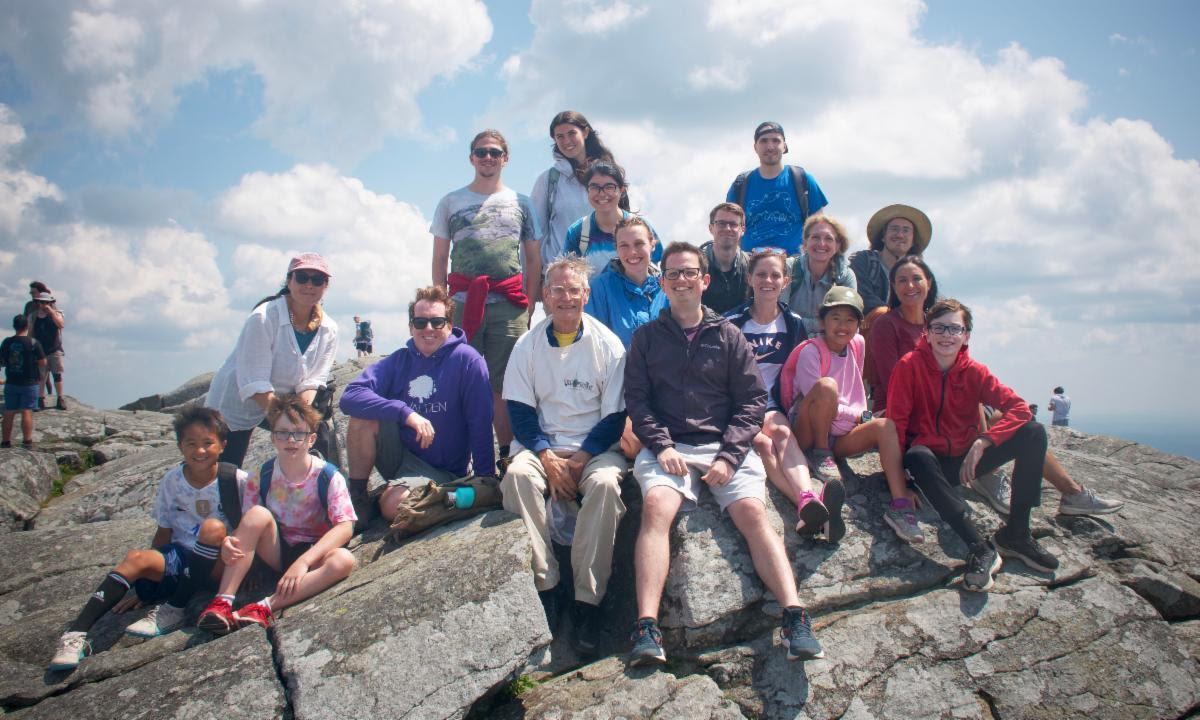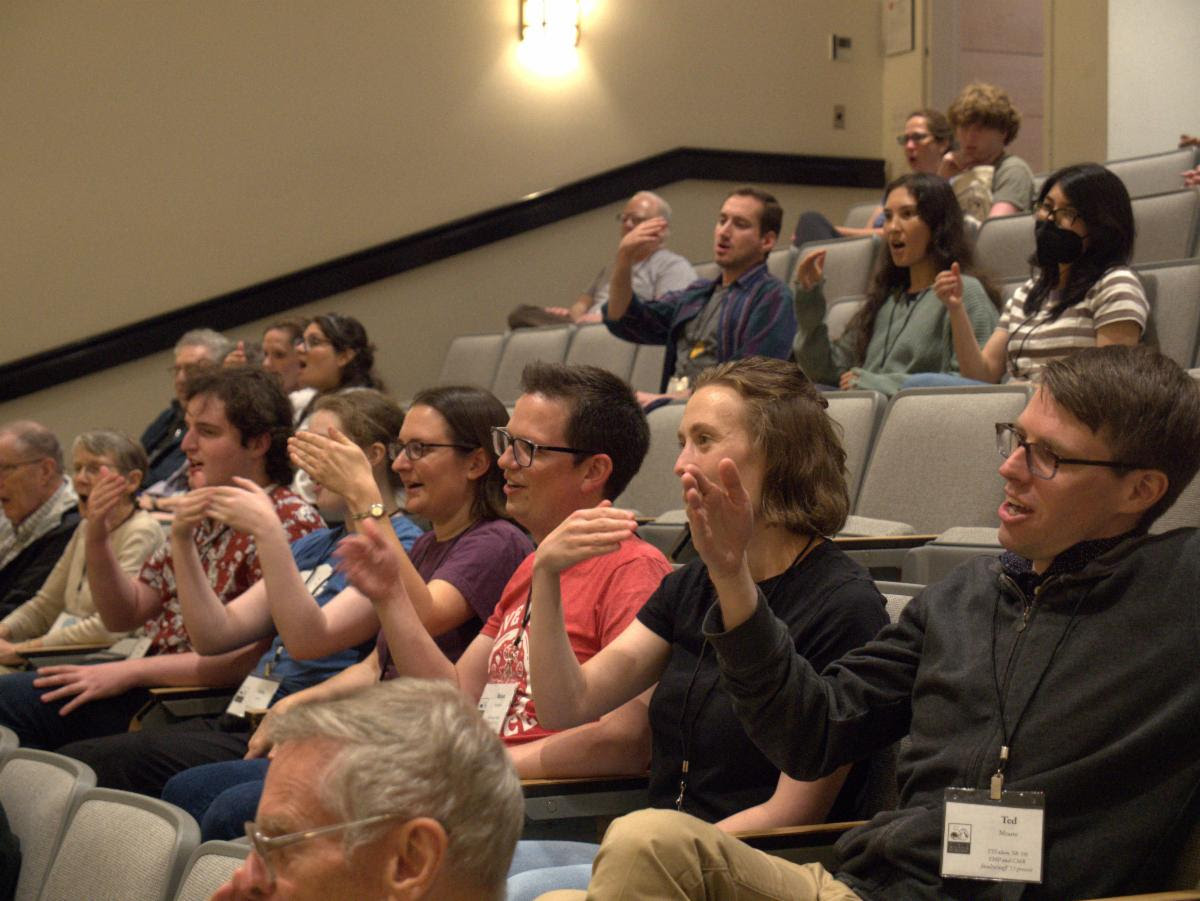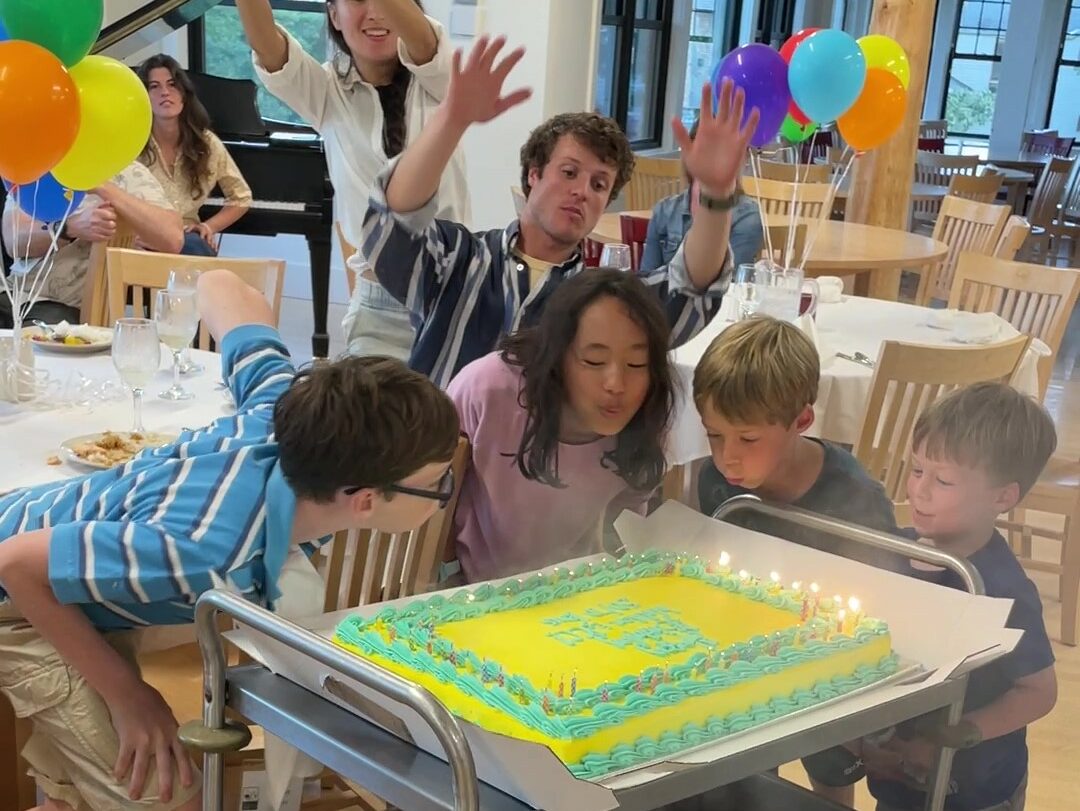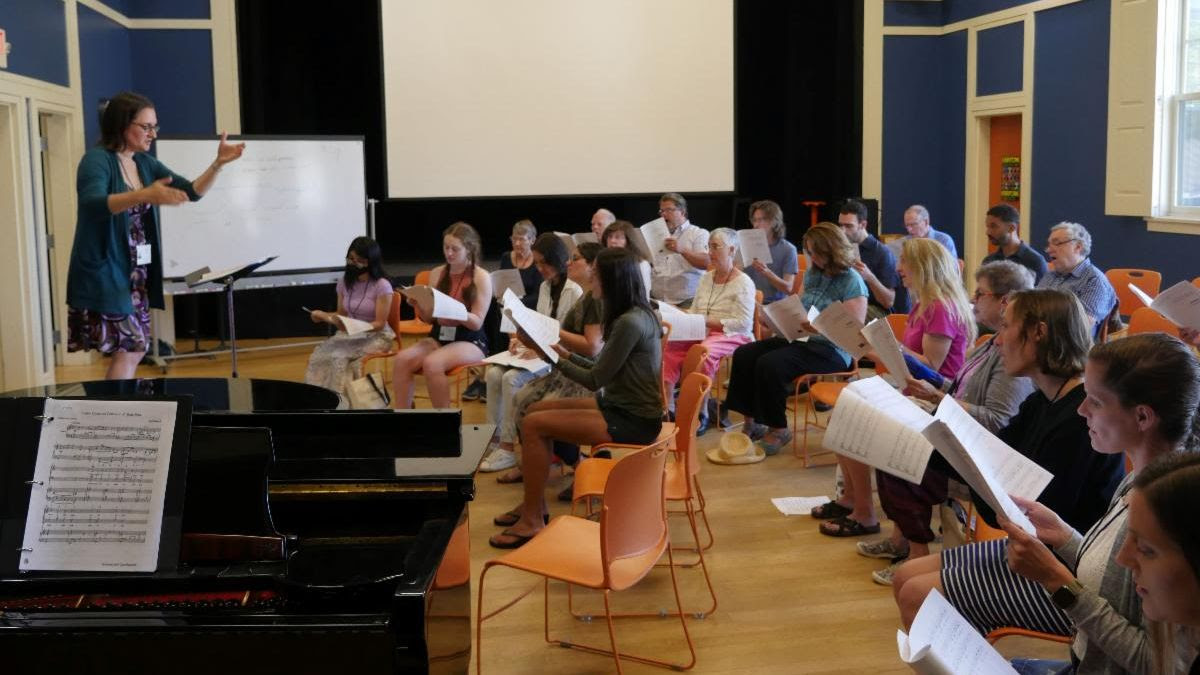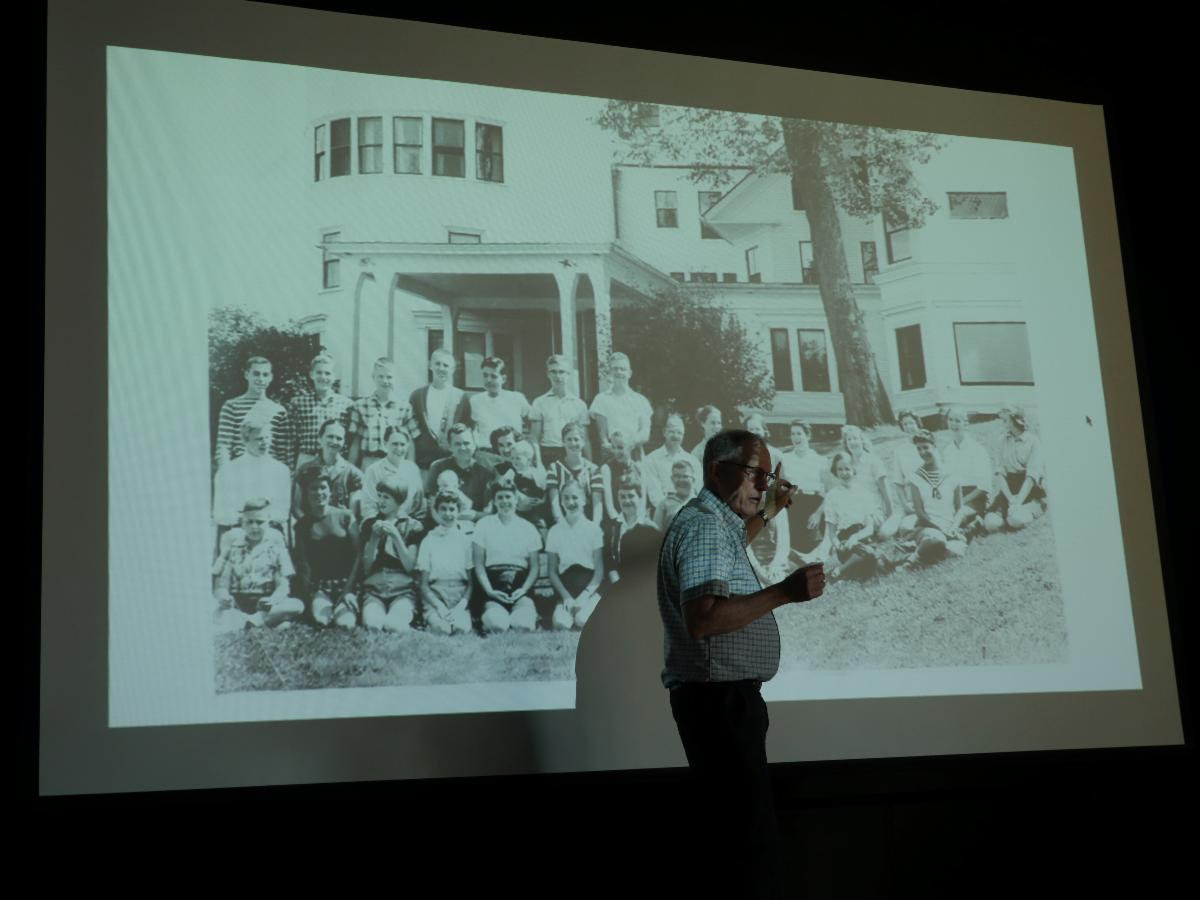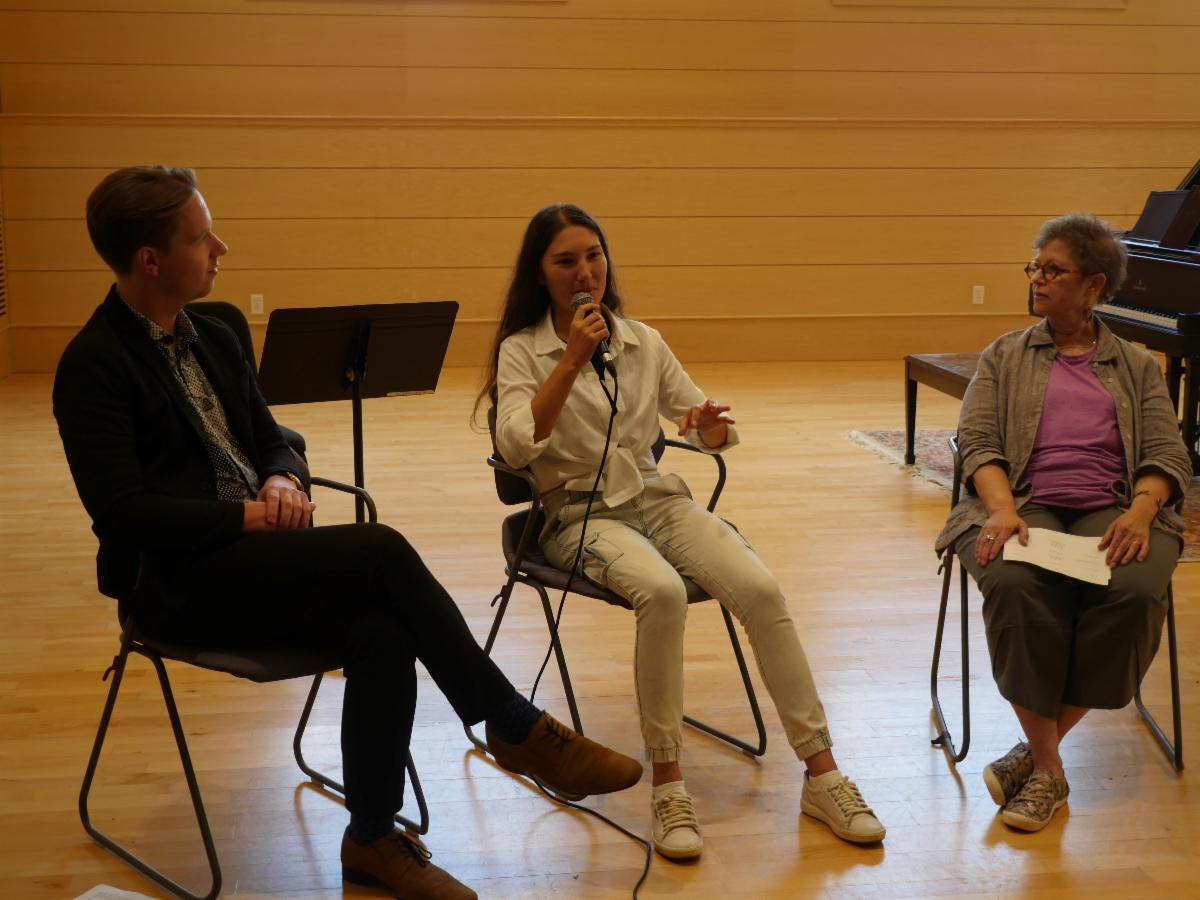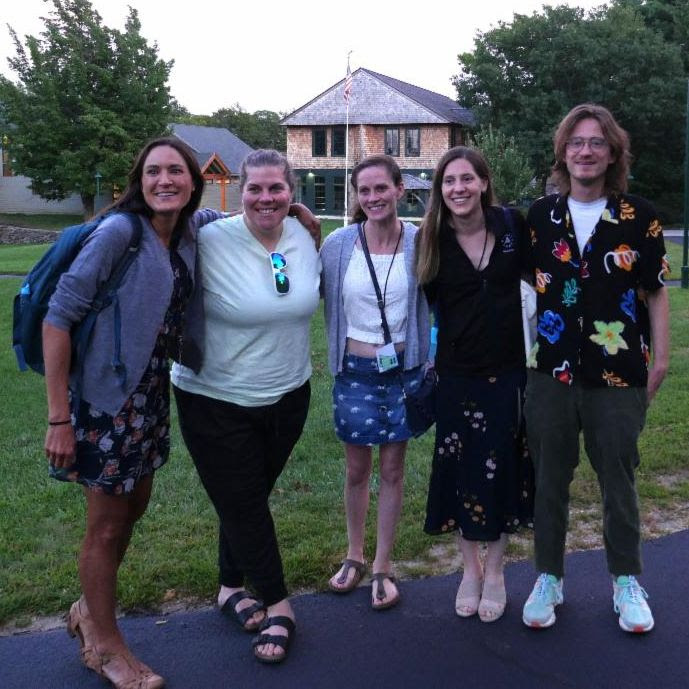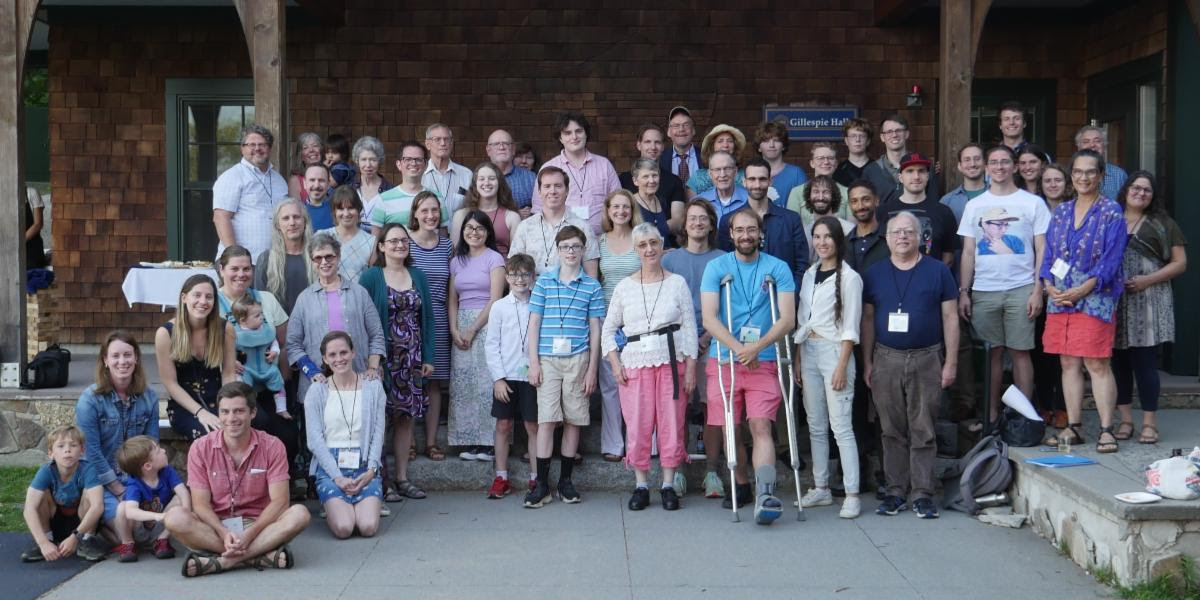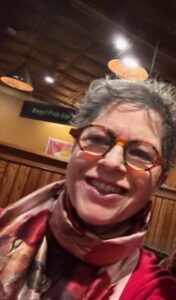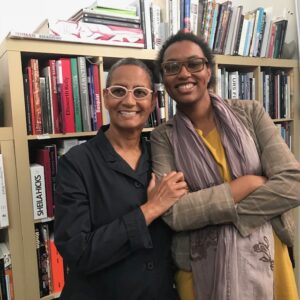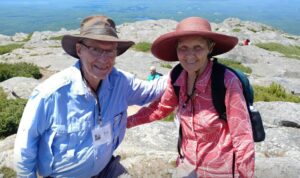Lance Reddick Scholarship in the Keene Sentinel
The Keene Sentinel interviewed Executive Director Seth Brenzel about the newly announced Lance Reddick Scholarship.
“It’s expensive to run any kind of music education program,” Brenzel said. “We’ve always been committed to providing financial aid, and I’m just thrilled we’re going to be able to grow that number quite significantly and create even more access opportunities.”
Read the full article: Walden's Young Musician Program receives $450,000 to offer full scholarships
Lance Reddick Scholarship in the Monadnock Ledger-Transcript
The Monadnock Ledger-Transcript covered the Lance Reddick Scholarship in a January 24, 2024 article.
"Lance was a wonderful supporter of Walden, and we are excited to see how Walden can be a springboard to future music creators who attend the Young Musicians Program as Lance Reddick Scholars,” stated Seth Brenzel, executive director of The Walden School. “We are so grateful to the generous donor who made this transformative gift to honor Lance's legacy."
Read the full article: Walden School announces Reddick Scholarship
Announcing the Lance Reddick Scholarship
FOR IMMEDIATE RELEASE
Media Contact:
Marisa Giller
314.630.4123, marisagiller@gmail.com
THE WALDEN SCHOOL ANNOUNCES LANCE REDDICK SCHOLARSHIP
Anonymous Donor Steps Forward to Honor Legacy of Esteemed Walden Alumnus and Actor, Lance Reddick, Creates Full Scholarship Program for Young Musicians
DUBLIN, N.H., (January 18, 2024) – Today, The Walden School, the celebrated summer music school and camp, announced it received a $450,000 anonymous donation in memory of esteemed alumnus and actor, Lance Reddick, who passed away suddenly in the spring of 2023.
The donation will fund 10 full scholarships per year for its 2024-2026 Young Musicians Program, enabling deserving young musicians the opportunity to experience Walden’s summer five-week program free of charge. Five of the 10 scholarships will be awarded specifically to students from the Baltimore area in honor of Mr. Reddick’s hometown and the birthplace of The Walden School.
Mr. Reddick attended The Walden School from 1976-1980, returning in 1983 as a Walden faculty member. While he was a lifelong creator and student of music, he was most well known for his television and film work, particularly for his role as Cedric Daniels in “The Wire.”
Walden’s Young Musicians Program is a five-week summer camp for students ages 9 to 18 that offers musical training in a supportive musical community. Students attend classes in composition, musicianship, music history, choral singing, computer musicianship, jazz, and more. Dances, swim trips, mountain hikes, and open mic nights balance out this rigorous musical training.
“Lance would be so honored by these scholarships being named for him, and this project would really touch his heart,” said Stephanie Reddick, Lance’s wife.
Mr. Reddick openly shared the importance of financial assistance in allowing him to participate in creative opportunities like Walden’s program that shaped the arc of his life. The scholarship in his name will provide each student with full tuition, room, and board, along with a travel stipend.
"Lance was a wonderful supporter of Walden, and we are excited to see how Walden can be a springboard to future music creators who attend the Young Musicians Program as Lance Reddick Scholars,” said Seth Brenzel, Executive Director of The Walden School. “We are so grateful to the generous donor who made this transformative gift to honor Lance's legacy."
Applications are due Friday, March 1. To apply, visit waldenschool.org/apply/. To learn more about the Lance Reddick Scholarship, visit waldenschool.org/lance-reddick-scholarship/.
About The Walden School
The Walden School inspires artistic expression and personal growth through experiential music programs. Founded in 1972, the acclaimed summer music school and festival offers programs that emphasize creativity through musicianship, improvisation, and composition. Programs include the Young Musicians Program for youth ages 9-18, and the Creative Musicians Retreat for adults. The Summer Concert Series showcases free, public performances by renowned artists and ensembles that work closely with students and perform their original music. To learn more visit www.waldenschool.org.
Reflections on the 2023 Walden/Junior Conservatory Camp Reunion
Reflections on the 2023 Walden/JCC Alumni Reunion
 From Noah Mlotek, Director of Development and Alumni Relations
From Noah Mlotek, Director of Development and Alumni Relations
Over the weekend of August 4 to 6, 2023, The Walden School hosted a weekend of events to celebrate Walden’s 50th anniversary and the 70th anniversary of the Junior Conservatory Camp (JCC), Walden’s predecessor program. Dozens of Walden alumni and their families gathered in the Monadnock region to reconnect with friends, make new connections, and experience a bit of the Walden/JCC magic once again.
On Friday, alumni began arriving on the campus of the Dublin School, Walden’s summer home for the last 40 years. We enjoyed an outdoor reception and barbeque dinner, workshops by veteran Walden faculty and alumni Caroline Mallonee (“Composing with Scordatura”) and Ted Moore (“Introduction to Modular Synthesis Using VCV Rack”), and Evening Music led by YMP faculty members and alumni Francesca Hellerman and Theo Trevisan. The evening concluded with Goodnight Music and a reception in Gillespie Hall.
On Saturday, alumni had the option of hiking Mt. Monadnock or Gap Mountain, swimming in Dublin Pond, or exploring nearby Keene or Peterborough. More musical workshops were offered: Chorus, led by former YMP choral director Sarah Riskind, and Musicianship, led by Walden faculty member and CMR alumnus Lukáš Janata. Saturday evening brought a wonderfully festive 50th-anniversary dinner, with balloons and cake for Walden’s big birthday. We then enjoyed a breathtaking solo piano recital by Mackenzie Melemed, a YMP alumnus, who inaugurated the beautiful historic Steinway piano recently donated to Walden by Dublin resident and Walden supporter Tuck Crocker, who was profiled in the September edition of InterNetzo. After gathering in our final Goodnight Music circle of the reunion, alumni were treated to a special photo show filled with cherished memories from 70 years of Walden and JCC history.
On Sunday, we watched a video prepared by former JCC faculty member Ron Nelson with priceless photos and footage from the history of JCC, enlivened with commentary from Bob Weaver, the “dean” of the reunion, who first attended JCC in 1956. We also heard an update on the amazing successes of Walden at 50 from Executive Director Seth Brenzel. The reunion concluded with a Composers Forum moderated by veteran Walden faculty members Lukáš Janata and Tamar Bloch, featuring nine compositions by alumni of CMR and YMP, and incredible performances by our reunion guest artists: David Friend (piano), Thea Mesirow (cello), Laura Cocks (flutes) and Ellery Trafford (percussion) of TAK Ensemble, and Joshua Rubin (clarinets) of the International Contemporary Ensemble (clarinets). Four of these five visiting artists are past performers at Walden.
From Sanctus to Black Socks, from Earth Goddess to My Old Brown Earth, from Jumala siunaa to sol-sol-la-sol-ti-do, from “come let us sing” to “we won’t be singing till then,” it was a rich celebration of Walden and JCC and 50 and 70: a shared ethos, community, musical language, and spirit of open-mindedness that is as strong as ever. In words by the poet Wendell Berry that will be familiar to many alumni: “Again, again we come and go, changed, changing. . . . Only music keeps us here.”
Thank you to all the alumni and family members who made the trip from near and far for this special reunion. And a huge thank you to the hard-working reunion staff, led by Director of Operations Sammi Stone, and the workshop leaders who made it such a fun and memorable occasion.
. . . till then . . .
Noah Mlotek
Director of Development and Alumni Relations
This item was originally published in the November 2023 edition of InterNetzo, Walden's online newsletter.
In the Spotlight: Tamar Bloch on Walden/JCC reunions
In the Spotlight
Tamar Bloch on Walden/JCC reunions
Tamar Bloch was a student during the last four summers (1969–1972) of the Junior Conservatory Camp (JCC), the predecessor program to The Walden School. Tamar went on to teach at Walden for many summers between 1975 and 2004, and she has also attended Walden’s Teacher Training Institute (TTI). Tamar is a longtime champion of JCC and Walden’s distinctive pedagogy, and she is a beloved presence in the lives of generations of Walden students. She lives in Rhinebeck, New York, with her husband, musicologist Peter Laki.
Here, Tamar shares reflections on Walden and JCC while looking forward to the Walden/JCC reunion that will be held the weekend of August 4–6 in Dublin, New Hampshire. This reunion will celebrate Walden’s 50th anniversary and the 70th anniversary of the founding of JCC by Mrs. Grace Newsom Cushman. Join us this summer to reconnect with Tamar and other wonderful Walden and JCC alums!
On her experience at JCC and Walden
I was a student in the last four summers at JCC. Going to JCC and teaching at Walden laid the groundwork for a lot of things in my life. It really informed my approach to teaching and listening, and it opened my ears to new music. When I was 16 or 17 at JCC, we analyzed Crumb’s Ancient Voices of Children, which today might not seem so radical. But in the early 70s, that was radical. We were weirdos in high school; I was interested in Schoenberg. At JCC I found my people. That’s what Walden and JCC are about, finding your people and this way of teaching that opens you up.
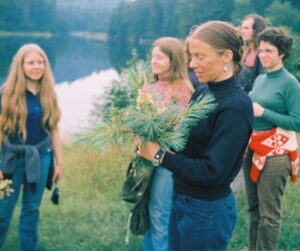
On relationships formed at JCC and Walden
There’s also the social aspect; dealing with people who you might have differences with. And there’s a mentoring aspect to the relationship with students, which is a 24-hour relationship—except when you sleep! There’s a deep level of caring and respect. There are so many people who were my students, and then they were my colleagues, and now quite a few of them have become very successful professionally. It’s very heartwarming to see that.
I’m still in touch with many of the people I knew from JCC: Ellen Hoffman (my husband, Peter, and I just took a class with her via Zoom and it was just fabulous); my former roommates Robin Seto, in Hawaii, and Sheree Clement, in Jackson Heights, New York; Jeff Cohen, who’s in Paris; and Matt Hunter, who is a violist in the Berlin Philharmonic. And Marilyn Crispell lives 20 minutes from me, so we see each other. I think it’s extraordinary that that these friendships still continue through the decades. When I lived in Hungary, Walden was home for me when I would come back to teach in the summers. And I think a lot of people feel that way.
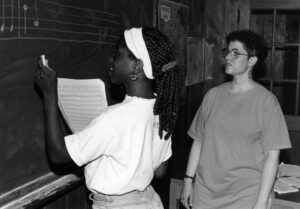
On Grace Newsom Cushman, the founder of JCC
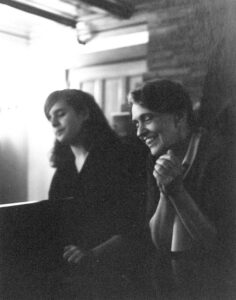
To me, it’s just amazing that one woman started this all in the 1950s. She just loaded these kids on a bus from Baltimore and went up to Vermont. How crazy is that? No one did that. And the curriculum she wrote is just phenomenal. It’s open enough so that the curriculum stays fundamentally the same, but it can be changed. Which is incredibly hard to do. She really was quite revolutionary. I’ve always thought she could be the subject of a book or dissertation.
What Mrs. Cushman created at JCC is now an intentional community at Walden. The same gestalt lives on. The idea of having a beautiful place to live away from the hubbub of the city is part of it. You’re up here for a certain number of weeks out of the summer.
On Walden/JCC reunions
I’ve been to three or four reunions. At the last one I attended, there were some wonderful classes. I remember Amy Catlin-Jairazbhoy did an impromptu workshop on Indian music and dance. The dances were great, and the Composers Forums—I actually moderated one or two. But it’s mainly the music making and camaraderie that are so special.
I also enjoyed meeting people from JCC that I’d never met because I was in the last bunch. It was great to talk with the previous generation of JCCers who had the same memories of Mrs. Cushman as I did. At the Zoom reunion a couple of years ago, I remember we talked about how none of us has ever thrown out anything which Mrs. C sent to us—a lot of which I’m finding now that I’m clearing out my apartment. So there’s a real connection. And I don’t know that that exists at all summer music programs.
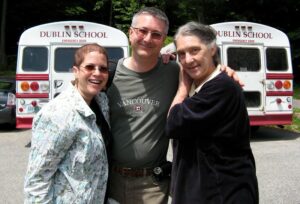
Remembering those we’ve lost
At a reunion, it’s also important to honor the people who have died, like Lance Reddick, whom I was really looking forward to seeing. Lance was a student and colleague at Walden. I knew him when he was a teenager. There’s David Hogan, there’s Flora and Georgia Cushman, Lynn Taylor Hebden, Paul Nauert, and John and Marianne Weaver. And more recently we lost Peter Krag.
Humphrey Evans III was a student and on faculty at JCC, and he sadly died in 1982. He was my teacher and mentor and just an off-the-charts musician. I found an analysis we did together of the Eroica, and his handwritten manuscript was just gorgeous. Now there’s someone named David Victor Feldman who’s gathering Humphrey’s recordings and scores and documenting his life. I recently did an interview with him about Humphrey. It’s important to remember these extraordinary people.
Why you should come to the Walden/JCC reunion!
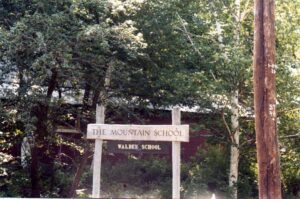
It’s a milestone reunion for Walden and for JCC. And it could also be the last time that some people might be able to make it there. Because you know, there’s not a reunion every year. So I think it’s very important to connect. And it’s always different in person than on Zoom; it’s multidimensional in person. I hope people from near and far will make the trip to celebrate this landmark and to share memories and experiences. I think it’s very important.
In the Spotlight: Rita Lewis and Ofurhe Igbinedion
In the Spotlight
Rita Lewis and Ofurhe Igbinedion
Ofurhe Igbinedion attended the Young Musicians Program (YMP) from 1999 through 2001. She recently completed a PhD in Geography at the University of California at Davis and works as a transportation planner for the Oakland Department of Transportation.
Her mother, Rita Lewis, has worked as a Registered Nurse for 30 years. She lives in Emeryville, California.
Veda Igbinedion, Ofurhe’s brother and Rita’s son, also attended YMP for one summer. He works as an attorney in the U.S. Army JAG Corps.
Rita and Ofurhe are longtime donors to Walden, and they both have set up recurring gifts through Walden’s online donation platform.
How did you and your family first get involved with Walden?
Ofurhe: My first year at the Young Musicians Program (YMP) was 1999. My brother, Veda, had gone the year before me. I remember being impressed when Veda came home from Walden with a piece of music that he wrote. I just thought it was like the coolest thing. I didn’t realize that was something you could do, you know?
I did piano and ballet, and I had been to Interlochen in my fourth-grade summer. And then I went to Walden the summer after that. I went to Walden for three summers. In high school I ended up going to boarding school in Vermont, not far from the Dublin School. So I feel like Walden kind of prepared me for boarding school.
Our summers were always filled with academic camps. Coming from a family with a single mom who was working, we had to do something in the summers. And I’m a nerd. I love school, but over the summers I got to choose which subjects I wanted to spend more time with. And I can’t spend enough time playing music.
Rita: I first learned about Walden by seeing a poster at the former Tupper & Reed music store in Berkeley. When my son, Veda, went, he was the youngest kid there at age ten. He had a wonderful time and came home with his first composition. His first week at Walden he went to the music store, and the first CD he bought was of Thelonious Monk in Paris, and I thought: I have the coolest kid! That’s what first established our family’s relationship with Walden.
I also want to mention that Walden has always been very generous with us and given financial aid. I was a single parent with two kids, and I feel very, very grateful and responsible to pay that forward to the extent I can. I just can’t say enough about how Walden has augmented my children’s musical education, especially in giving them choral singing experience. Veda was involved in choral singing from a very young age and went on to sing in a cappella groups in high school and at Williams College, which has a wonderful music program. And when Ofurhe was at the University of Chicago, which can be cold and grim at times, she was in the choir. I went to visit her there and saw the room that they practice in. It’s this beautiful old wood-paneled room with leaded glass ivy in the windows. And I just thought how wonderful it was that she could do this every day. I feel like that gift was very much established from her experience at Walden, not to mention the friendships that she made.
Ofurhe: That’s totally true. Pretty much all of my college social life was from Motet Choir. When I went to audition, being able to say that I had experience with movable-do solfege from Walden, I was able to breeze through the audition. I had to sight-read something, and when I made a mistake, the director told me I could actually go through it using solfege. And then I was able to sing through it, because I knew the intervals. All of my musicianship that has stuck with me is from what I learned at Walden.
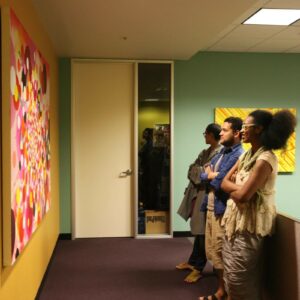
What are some highlights of your time at Walden or of Walden’s impact on your life?
Ofurhe: One of the biggest things about Walden, aside from the musicianship, is the friendships. My two best friends there were Hamilton Sims and Marguerite Ladd. They were the best, and we were pretty inseparable when we were there. We took all our courses together and would spend all our time together. And between summers, we would e-mail and use AOL Instant Messenger. So just like Walden musicianship made me a good musician, I feel like my friendships from Walden made me a good friend. They taught me to navigate friendships across the country. That was really tricky and I think we got pretty good at it, and that’s something that has been really helpful for me.
Rita: With both my kids, Walden helped them have this comfort level with being away from home and cultivated their independence. Anyone I know with a kid who’s like musically inclined, I tell them to check this out. I’m always telling people Walden has been the greatest thing for our family. My kids went to boarding school. They went away to college, and they’re such good travelers. I just can’t say enough good things about Walden to people I encounter, and in fact just the other day I forwarded the info sessions that are coming up to several people. And I’m very fond of Seth and Malcolm. I’ve known them for a long time.
Ofurhe: I remember we helped them stuff envelopes for Walden fundraising appeals.
Why do you give to Walden, and why give a recurring gift?
Ofurhe: We got a lot of financial aid, and I want to be able to pay that forward. I did a lot of academic camps, I just finished a PhD at UC Davis, and so I’ve had a lot of school and I get a lot of alumni giving appeals, and I don’t always pay them much attention. But when Walden comes around, I feel like I need this institution to survive. It was really important to me, and I want other people to have that.
Rita: I just feel so warm and fuzzy about Walden, and I’m a little jealous that I never got to go there. I hope that we will go as a family sometime to experience Walden together. So I just have nothing but fond feelings, and I feel so fortunate that I happened to see that poster at Tupper & Reed, which isn’t even there anymore.
In the Spotlight: Bob Weaver
In the Spotlight
Bob Weaver
Bob Weaver is an alumnus of the Junior Conservatory Camp (JCC), the predecessor program to The Walden School, and has been a participant at Walden’s Creative Musicians Retreat (CMR). Bob and his wife Anne, a fellow JCCer who is a physician as well as an accomplished musician and choral director, are longtime Walden donors and active members of the JCC/Walden alumni community. Bob is Professor Emeritus of Mathematics and Computer Science at Mount Holyoke College. He is a published composer, particularly of hymns and anthems, and an avid choral singer. Bob and Anne live in a retirement community in Needham, Massachusetts.
Bob began attending JCC in 1956. Anne started in 1962, which is when they first met.
How did you first get involved with the Junior Conservatory Camp, and what has been your involvement with JCC and Walden since?
My brother John, a concert organist, composer, and teacher, started as a teenager at the JCC in about 1952. My family and I, from Baltimore, visited camp at Manor Vail in Lyndon Center, Vermont, for a couple of days in summer 1955, and I knew right away that I wanted to be a part of this friendly and supportive community and to study with Mrs. Grace Cushman. So I started there the following summer and continued coming to camp for eight years—right through college. I was on the dishwashing crew and later served as boys’ counselor. Many will remember that the dish crew filled the kitchen with wonderful vocal harmonies and resolving seventh chords while we scraped and loaded the dishwasher.
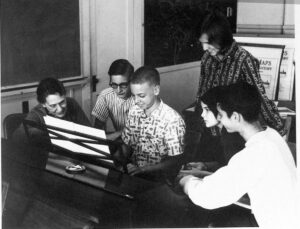
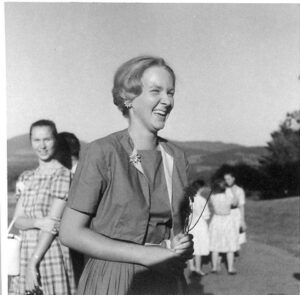
For my last two summers at camp, Anne Conley attended, and we were married when she graduated from Wellesley College in 1967. Later, when we were living in western Massachusetts, we saw an article in our local newspaper, the Greenfield Recorder, announcing a concert to be given by JCCer Nansi Carroll at The Walden School. Not wanting to miss that, we made our first trek up to Dublin, New Hampshire. We were immediately impressed that the warmth and supportive atmosphere that we had known at JCC, years earlier, was most palpably present at Walden in a way that brought back vivid memories of our camp experience. We have since attended all of the JCC/Walden reunions at the Dublin School, and some of the Composers Forums, and we have taken part in fundraising and committee work for the school. Several years ago, I attended the Creative Musicians Retreat (CMR), a week full of inspiring musical events and superb faculty and fellow attendees.
Many JCC folks will remember singing the hymn tunes that I wrote while at camp (“Dear Lord and Father” and “Lord, Thy Glory Fills the Heavens”). Over the years, and especially since I retired from teaching at Mount Holyoke College, I have continued composing and have written a number of other hymn tunes, setting some beautiful texts by my friend, William Pasch, of Atlanta. Together, Bill and I have expanded these tunes into choral anthems and have published with Augsburg Fortress Publishers and the St. James Music Press.
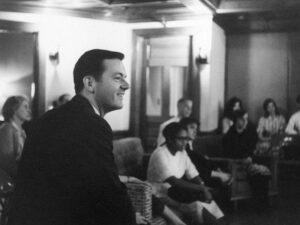
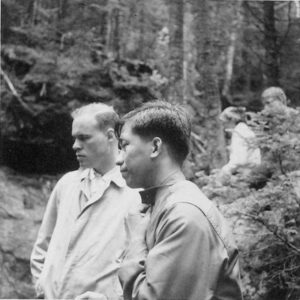
I understand you have a video of JCC that you’d like to share with us. How did the video come together, and what does it show?
In 2007, we attended the JCC/Walden reunion in Dublin. Dr. Ron Nelson, who had been a JCC faculty member and composer-in-residence for a number of years, was unable to be there but made a video to share. It was a silent video with footage from JCC that Ron had taken in 1960. Last spring, I rediscovered the video and worked with Ron to edit it and add some of Ron’s original compositions in the background. You can watch the video here. Ron is now living in Arizona in retirement from the music department of Brown University.
Why do you give to Walden? Do you have any hopes for Walden’s future as we embark on its 50th summer?
Anne and I know how profoundly the Junior Conservatory and Walden have affected and enriched our lives. We contribute to the school in the knowledge that the Walden experience (in both of its forms, YMP and CMR) can have the same positive effect on others who want to learn and compose and share interests. This is a precious program that must be preserved and extended into the future. I urge everyone to give generously to Walden.
Do you have any stories of Walden/JCC connections that you have made and maintained over the years?
So many of the people whom we knew in our summers at JCC have remained our valued friends to this day. We hear of their musical accomplishments, we remain close through email, Zoom, letters, and visits in person. We were so pleased when Walden arranged for a Zoom gathering of JCC alums this past year. That was a real treat that got many of us together for a wonderful virtual sharing of memories.
And here is a “small world” anecdote. At the 2018 Walden reunion at the Dublin School, Anne and I were chatting with a group and mentioned that we are living at the North Hill Retirement Community in Needham, near Boston. Former JCCer Tom Terwilliger said that his mother had lived at North Hill. At that moment, Solon Snider, who was himself a Young Musicians Program alumnus and attending the reunion, overheard us and interjected: “North Hill—my grandparents live there.” It turned out that his grandparents, Stanley (now deceased) and Mary Ann Snider, were fellow residents whom we knew and had visited with over dinner.
Not long ago, I happened to meet a gentleman, Jim Snider, who was reading in one of the lounges at North Hill, and we struck up a conversation. He said that he has a son, Solon, who is very much into music. I immediately recognized that name and said, “I’ve met your son!” He looked puzzled until I said it was at the Walden School! And yes, Jim knew all about Walden and its wonderful programs.
We all have heard that your brother John and his wife Marianne both passed away in 2021. They had a profound effect on the sacred musical scene in this country, and both are remembered for their many years at JCC.
Yes, John graduated from the Curtis Institute and remained a fixture at JCC as a faculty member and as Assistant Director of the camp, except for the years when he was drafted into the Army. For his Army service, he was named the organist and choir director of the Post Chapel at the U.S. Military Academy at West Point. Later, when John’s teacher, Alexander McCurdy, retired from Curtis, John was recruited to replace him in the Organ Department there. Also the organist of the Madison Avenue Presbyterian Church in New York City, he happily commuted to and from Philadelphia by train—his favorite form of transportation. Some years later, the Juilliard School asked him to chair their organ department, which he did while continuing at Curtis for many years until his retirement in 2005.
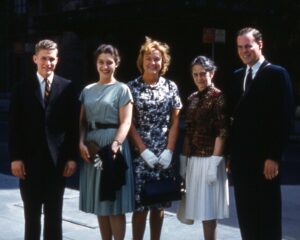
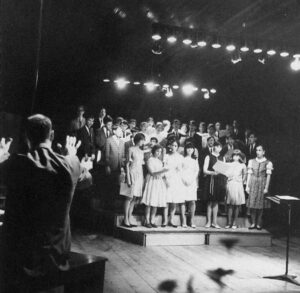
Marianne was a wonderful flutist who performed frequently with John, including at JCC where she was on the staff for many years. She helped lead the music ministry at Madison Avenue, including directing the Junior Choir, and earlier, she and John established the Bach cantata series at Holy Trinity Lutheran Church in New York. John and Marianne spent their summer months at a house that they built in their beloved northern Vermont, not far from Lyndonville, and they eventually retired there.
For more details about John and Marianne, and about my own music, check out my website. There is a link on that site to the JCC/Walden connection. There is also a page that I’ve developed describing John’s career, including videos of John and Marianne in concert in New York and a wonderful 90-minute Public Radio interview (“Pipedreams”) from 2007 in honor of John’s 70th birthday. My contact information is also there, and I’m always happy to hear from people in the JCC and Walden communities.
In the Spotlight: Sam Pluta & Sky Macklay
In the Spotlight
Sam Pluta and Sky Macklay
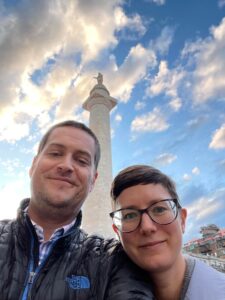
Sky Macklay is a composer, oboist, and installation artist who was on faculty at Walden for nine summers. Her music is conceptual yet expressive, exploring extreme contrasts, surreal tonality, audible processes, humor, and the physicality of sound. As a 2021 Guggenheim Fellow, her next project is a chamber music album that will synthesize her work as a composer and her raucous, multiphonic-rich oboe performance practice. She is a founding member of the New York-based Ghost Ensemble. Macklay completed her DMA in composition at Columbia University.
In the last year, Sky and Sam have taken up teaching positions at the Peabody Institute of Johns Hopkins University in Baltimore, continuing a long and deep association between Peabody, The Walden School, and the Junior Conservatory Camp (JCC), Walden’s predecessor program. JCC founder Grace Newsom Cushman, along with Walden co-founders Pam Quist, David Hogan, and Lynn Taylor Hebden, each enjoyed a long association with Peabody, and hundreds of Walden and JCC alumni first learned of JCC and Walden while studying music at the Peabody Prep. For many decades, there was a bus that left Peabody early in the morning on the last Saturday of June, filled with eager campers bound for New England to kick off each amazing summer of Walden (and perhaps JCC, too?).
How and when did your relationship with Walden begin, and what has been your involvement since then?
Sam: My relationship with Walden started in 2001 when I was on staff just after finishing college. In 2002, I was hybrid staff and faculty, and then from 2004 to 2016 I was on faculty at YMP. I was also Director of Computer Music at YMP from 2008 to 2016, and Academic Dean for at least 5 years until 2016. I was one of the founding faculty members of the Creative Musicians Retreat (CMR) in 2012, and on faculty at CMR for five years. When I was teaching at the University of Chicago, the quarter system made it impossible for me to do CMR, but now I’ll be back teaching at CMR this summer.
Sky: My relationship with Walden began in 2009 when I attended the Teacher Training Institute (TTI), and I absolutely loved it! I applied to be on faculty at Walden’s Young Musicians Program (YMP) the next year and got the job, and I was a faculty member at YMP from 2010 to 2018. I have also been on staff and a participant at CMR. I haven’t been on faculty for a few years now, but it’s my dream to teach at Walden again in the future.
Could you describe a favorite memory from your time at Walden?
Sky: One of my favorite parts of Walden is open mic night. I would host open mic nights a lot, and it was just such a wonderful time for everyone to share their creativity. One open mic night coincided with Christmas in July, and a YMP student named Evan Johnson [a 2022 YMP staff member] was my Secret Santa. For my present he gave me a really beautiful song that he wrote about me and Sam, so Sam and I danced to it at the open mic, but Sam was wearing Santa makeup, and the Santa makeup got all over my face while we were dancing!
Sam: Alex Christie [current YMP and CMR faculty and leadership team] wrote the Mountain Song almost 20 years ago, and the students still sing it whenever they hike Mt. Monadnock. It’s amazing to see a student get up to present something and you don’t know what it’s going to be, and then it’s something amazing that becomes part of the fabric of Walden, which will be passed down by generations of students.
Could you share some highlights from composing or performing in the last year?
Sky: I had a string quartet premiered by Kronos Quartet as part of the Bang on a Can Loud Weekend at Mass MoCA. I also made a new harmonica installation called Harmonitrees at Stetson University, and now I’ve integrated two of the trees into a new piece of chamber music called Harmonifriends with Ghost Ensemble, which was recently premiered at Uptown Underground in New York.
Sam: This weekend the double-bar bandit arrived and put the double bars on my piece for orchestra and electronics, called Seeker, for the Warsaw Autumn International Festival of Contemporary Music in September.
What are your current positions at Peabody?
Sam: I’m an associate Professor of Computer Music. At Peabody, composition and computer music are separate departments, but they’re both departments for composition, just with a different focus.
Sky: I’m a Lecturer in Composition. I mostly teach composition, and in the fall I’ll also be teaching a class called Composers of the AACM (Association of for the Advancement of Creative Musicians), which I’m really excited about. I’m also the composition coordinator for the low-residency master’s program, which is a new format that offers more flexibility for composers who may not be able to relocate for a master’s degree. It’s an intense summer experience, followed by two semesters of online classes, and then another intense summer experience. My Walden skills are especially helpful in creating an amazing summer festival experience and fostering a musical community in a short period of time.
How has Walden pedagogy informed your university teaching?
Sam: Part of the job in teaching is creating a community, creating situations where students get together to make music and teach each other. There’s nothing better than teaching for 16 years at Walden to make you understand how to foster community.
Sky: I take that same attitude from Walden, where composers forums provide a model for respectful dialogue involving composers and performers. I use creative musicianship and “Discover, Drill, Create” all the time in my composition lessons. If a student is stuck, I try to find a piece where we can discover something related to what they’re working on and create a drill based on it, which can help students get through creativity blocks and get the notes flowing.
Are there any reflections you could share on the Walden legacy at Peabody?
Sky: At Peabody, we are traversing the same halls as [JCC founder] Grace Cushman and a lot of Walden people including Steve Coxe, Leo Wanenchak, and Pam Quist. I recently came across an old Peabody newsletter that mentions a Walden alumna named Laura Kolker. It says she was a Peabody Prep student who won a BMI award and went to Walden four times, where she studied with Pam Quist, John Yankee, and Paul Nauert.
Sam: Pam Quist was the first person to teach electronic music at Walden, using tape-splicing equipment in the 1970s and ’80s. Pam learned that from Jean Eichelberger Ivey, who started electronic music at Peabody more than 50 years ago. So for me to bring my Walden pedagogy back to Peabody in the form of Walden’s Computer Musicianship course, which is the basis of all my electronic music teaching, that’s a pretty awesome circle!
Sky: For my Composers of the AACM class, I was researching the Schillinger method of composition, because one of the AACM composers, Muhal Richard Abrams, was a Schillinger practitioner. I believe the Schillinger method was an inspiration for some Walden and JCC teachers, including Grace Cushman. Joseph Schillinger was a composer who created a system involving algorithmic ways of generating rhythms and pitches. There’s a major Schillinger archive at Peabody, and the librarian who organized it was Ned Quist, who performed at Walden as part of Cross Country and wrote a beloved arrangement of “To My Old Brown Earth.”
In the Spotlight: Amy Catlin-Jairazbhoy
In the Spotlight
Amy Catlin-Jairazbhoy
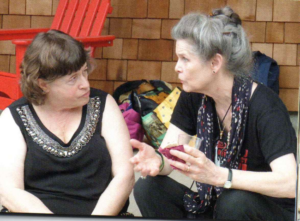
Amy is a Junior Conservatory Camp (JCC) alumna with deep ties to Grace Cushman and her teachings. She is also a donor to Walden who carries herself with a lively and passionate spirit that shines through her research, teaching, music, and everything she does.
Learn more about her work at Apsara Media, and read her full biography on UCLA’s website.
How and when did your relationship with the Junior Conservatory Camp (JCC) begin?
My piano teacher in Montgomery County would take me with her every Saturday to Peabody Preparatory; we would take Musicianship classes with Grace Cushman together. Within two years I was teaching my piano teachers’ students musicianship as well.
This naturally led to attending the Junior Conservatory Camp for two years, then coming three more years as a faculty member.
In my last two years of high school I studied Bharatanatyam classical dance of South India with Georgia Cushman (one of Grace Cushman’s two daughters) in Baltimore. She had just come back from Madras, India (which is Chennai today), where she had studied at Kalakshetra. I was a devoted student, but it’s very difficult when you start at 16 years old! That Indian connection was one reason I went to India as a graduate student. I chose college instead of staying at the Conservatory, because I wanted to know more about the rest of the world, especially during the Vietnam War years.
Could you describe a favorite memory from your time at JCC?
I have an aversion to favorites . . . it seems that you are ranking things. I have many favorite memories. The composer forums were stupendous. The performances were breathtaking. To have my own compositions performed—a Robert Frost poem that I set for piano and violin, performed by soprano Shari Fleming. It was the second time I heard my own composition performed.
Also, singing in some of Humphrey Evans’ compositions. He was a great inspiration and in my cohort of students. He was a close friend until his last days. He was a genius and iconoclastic, funny, witty. We used to play ping pong together at camp!
What is something from JCC that you have carried with you?
How to improvise with the material you’re learning in musicianship. How to make creative use of the knowledge that you acquire was the main teaching that Grace taught all of us. To use what you’ve learned: if you’re just learning facts, you’re not making use of it, and you’re not using it creatively. That’s what I’ve done with my scholarship also. I try to use it in creative ways, applying music research to address community problems, both in India among underserved communities and here (in the US) with refugees from Southeast Asia: Hmong tribal refugees from Laos and Khmer refugees from the killing fields of Cambodia.
It’s so deep. It’s so fundamental, the methods that Grace used—not to mention her enthusiasm and her passion!
Mrs. Cushman taught me how to plan a lesson and how to evaluate a lesson after you’ve taught it. She was very aware of each student’s needs, backgrounds, disabilities, insecurities. I still do that—I plan my lectures; I write out every word when I teach now, and afterwards review every line of what I did and what I added. I keep in touch with as many students as I can; it’s been born into me because of Grace.
How are music and/or creativity part of your life now?
I’ve been teaching one course at UCLA for the past 10 years. It’s not about classical folk music of India, not about music of the sacred (all topics I taught with my applied work in ethnomusicology); it is called “Music of Bollywood and Beyond.” It covers 100 years: from silent films to the present. This history of cinema and music relates deeply to the history and the people of India. I tell my students, most of whom are of Indian heritage, that “you can talk to your grandparents about this.” They come back and say they’ve had the best conversations with their grandparents and parents . . . it bridges the generational gap. Suddenly you have something to share that you both love.
I teach in an applied sort of way. I design the courses myself, and the students are the subjects. We have some great discussions about how films composed 50 years ago might relate to today, about whether they were created before or after independence. It gives it a historical foundation to talk about the films, and the music, and the influence of Western music and jazz.
I also still play the piano. I like to improvise in an Indo-Jazz fusion style which I do sometimes with a partner who plays the saxophone. I’ve taught him how to improvise in different Ragas (singular Indian Raga), especially one raga that my husband called a “hypothetical” raga because it never occurred, but it should have. It uses the pentatonic (all black keys) with C (tonic) and G (dominant).
What is a non-musical hobby that’s part of your life?
Ping pong! It’s a great game for musicians. We have an outdoor ping pong “stadium” in our home. It’s very good for hand-eye coordination. It’s the fastest game there is, good for mental & physical agility. Great for elders, as the sudden movements are good for preventing Alzheimer’s.
I also love to dance: couple dancing, or ballroom dancing and Middle Eastern dance. Coordinating with the music is so important—and so good for the brain. I also exercise at the gym on the elliptical trainer while watching the news. I watch Indian news every day on three different channels.
Why do you give to Walden?
Transformation.
When I went to the Peabody, I was teaching there in my Junior and Senior years of high school. In fact, I had left home.
She [Grace Cushman] made it possible for me to leave by getting me this job as a live-in cook and babysitter for the six children of the Rector of St. Paul’s cathedral. So, I could afford to leave Chicago where my parents had moved, which I hated! I was able stay on in Baltimore after camp.
See what a difference this made in my life? It made me independent from the time I was 16 . . . I didn’t see my parents for two years. I’m telling you: she transformed my life. I owe my life to her. So, when you ask why do I give to Walden? That’s why. The transformation of my life.
What hope do you have for Walden’s future?
I would love to see a connection with NPR’s “From the Top,” and to see more international scope, incorporating music from different cultures!
In the Spotlight: David Roberts
In the Spotlight
David Roberts
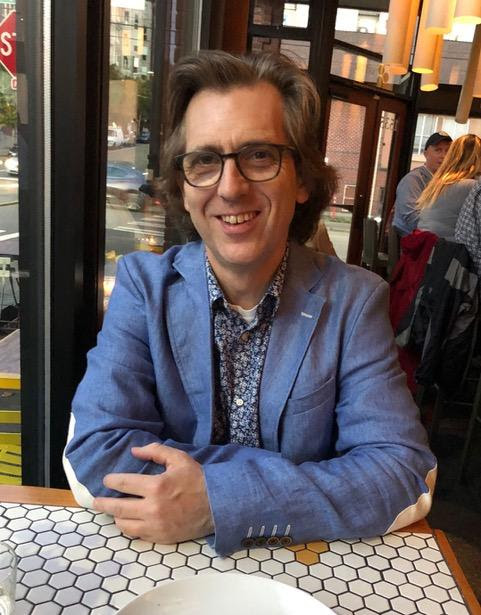
David Roberts is the parent of YMP alumnus Marco Roberts, and a member of Walden’s Board of Directors. Before moving his family to the Seattle area in 2016, David lived and worked in China for 20 years, most recently as a partner in the Beijing office of O’Melveny & Myers where he practiced corporate and securities law. For a brief period, the four-piece Roberts Family Band rocked the Beijing elementary school and office party circuit with an eclectic mix of Beatles, Cui Jian, and Soundgarden covers until breaking up over creative differences. Having retired from his law career, David spends his time writing fiction, competing in table tennis tournaments around the U.S., and skiing every storm possible in the Cascade Range.
How and when did you get connected to Walden?
I first got connected to Walden in 2014. Our family was living in Beijing at the time. My wife is from Beijing, and both our kids, Marco and his younger sister Sophia, had grown up in Beijing all their lives, our home for 13 years. Connecting with Walden was not intuitive or easy, and it’s amazing that we found it.
At that time, Marco was becoming immersed in music, through his own initiative. He had started composing on his own and when he watched the movie Amadeus, he completely connected with images of Mozart composing by hand. He figured out how to make his own staff paper and printed it out and started composing a chamber symphony all on his own.
We thought, “Okay, this is not normal” because none of us were teaching him, he was teaching himself. We tried to find a composition teacher in Beijing, but it’s very difficult to join that world if you don’t have preexisting connections. I was looking online, and I found Walden among several other programs in the US. Something about Walden connected-it just looked right. I called the office and spoke with Seth, and that was really helpful, but it still sounded pretty daunting. How could we get him from Beijing to rural New Hampshire? Seth also put me touch with an alumni parent who was living in Beijing, whose daughter had attended Walden a number of years before, and she put our minds at ease.
What has been your involvement since then?
Marco first attended Walden when he was 12, and he did five summers in a row, from 2015-2019. Our family was still in China during his first summer, then his second summer we were in transition, moving to the Seattle area. We could tell from the first summer that Marco had found his place-he just loved Walden. We could see that he was developing and growing in the program, and knew it was perfect for him. So my initial involvement was just as a parent. I visited a few summers, not every summer, because even from Seattle it isn’t an easy trip.
Our summer 2020 plans were still up in the air when the pandemic happened. We were struggling with what to do when OYME became an option. He signed up and it was great–I am so glad he had those four weeks. The program was unexpected and improvisational, and it was really well done. Marco composed several pieces, but his piece for Festival Week was really meaningful. He has a deep interest in geopolitics, especially regions that are often overlooked. He composed a haunting piece inspired by Armenian music called Erasure that explores ongoing conflicts among Turkey and its neighbors. Two months after he finished the piece, war broke out in Nagorno-Karabakh between Armenia and Azerbaijan. That piece really showed what Walden did for him–it went from a love of music to using it as a language to interpret and comment on the world around him.
Could you describe a favorite memory or experience from being a Walden parent?
My favorite experience is basically the whole first summer, how improbable it was and then watching it become a reality. Sophia named it “Operation Marco” because there were so many pieces that needed to come together. As a family we went from Beijing to Seattle, where we put Sophia in a different camp and lived out of a basement apartment while our new home was being remodeled, then Marco and I flew to New York, and drove from there up to New Hampshire together. He was very quiet, and I could tell he was nervous. As we got closer, taking winding roads through the countryside, my phone lost reception and I casually remarked, “Wow, this is really remote,” without thinking what Marco was absorbing. Of course, he had grown up in a city of 30 million people, and now we’re in the middle of nowhere without cell service. He started to cry. We talked it through, and I tried to reassure him it would be okay, but he was pretty scared. Finally we arrived at Walden, and I was amazed how friendly and warm the vibe was-it was clearly a special place. There were faculty and staff members greeting students, and they immediately made Marco feel welcome. I stuck around for a few hours, and we met other parents and kids, and he started talking to the other kids, so by the time I left I could tell he was going to be okay.
I was still nervous all summer. That drop-off was a big step for him, but I didn’t know how he was going to handle five weeks so far from home when he had never done a live-away program before. He called about a week later and told me that one of the senior campers, Jane, had brought a Chinese instrument to camp (a zither, I believe) and said if anyone was interested in composing for it, they should talk to her. He asked, “Should I talk to her?” and I said, “Absolutely!” Then I didn’t hear about it for the rest of the summer. We showed up for Festival Week really excited to hear his piece, but he had hardly told us anything about it-when he gets excited about something, he’s so immersed he doesn’t say much. But we saw the program, so we knew his piece would be for this instrument, along with violin and cello. Jane and The Walden School Players played the piece beautifully, and I know I’m biased as a proud parent, but it was the best thing I’d ever heard. I couldn’t believe it. I thought, “This is what he learned in five weeks? This is incredible.” It was so different from what he had been writing on his own before going to Walden. Those pieces were impressive to me, but you could tell he was mostly drawing on Mozart. I had never heard him improvise anything remotely like this piece-it was so unique and drew on both his Chinese upbringing and his love of European music and opera. So that first visit is one of my favorite Walden memories.
How are music and/or creativity part of your life?
I grew up with completely non-musical parents who made a concerted effort to expose me to a lot of music. My mother used to joke about being tone-deaf, and neither of my parents really read music, but they put me in piano and trumpet lessons and I sang in the San Francisco Boys Chorus from age 7-13, which was a great experience. So, I am an amateur musician but can play enough piano to have gotten Marco interested in the instrument from a young age.
Now, creativity for me is mostly writing. I left my law career to pursue writing fiction. I’ve been taking classes at Hugo House in Seattle and working on a novel for several years, which is a difficult project, and I’ve also written several short stories. That has given me an appreciation for how difficult any creative process is-it’s just really hard work. You have to learn craft skills and how to apply them to achieve your creative vision. So a place like Walden, even for an adult musician, is really cool because someone might love music and want to create music, but you have to learn skills too and find a community that supports your creativity. You generally can’t just wing it on your own. Pursuing writing has given me a new appreciation for how difficult it is to be an artist.
What is your hope or dream for Walden’s future?
Don’t fix it if it ain’t broken. There is definitely something to be said for preserving traditions and the way things work, but I like how Walden is innovative at the same time. It’s this very interesting balance between traditions (those unique Walden-y things that have been done for decades) and also being experimental and on the cutting edge, whether it’s digital music, or this past summer turning on a dime to create online programs from scratch that still preserved the Walden feel. My hope is just that Walden keeps going strong, preserves its core traditions, and continues to innovate with the core traditions and its sense of community as the foundation for that growth.
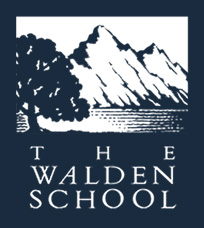


 From Noah Mlotek, Director of Development and Alumni Relations
From Noah Mlotek, Director of Development and Alumni Relations